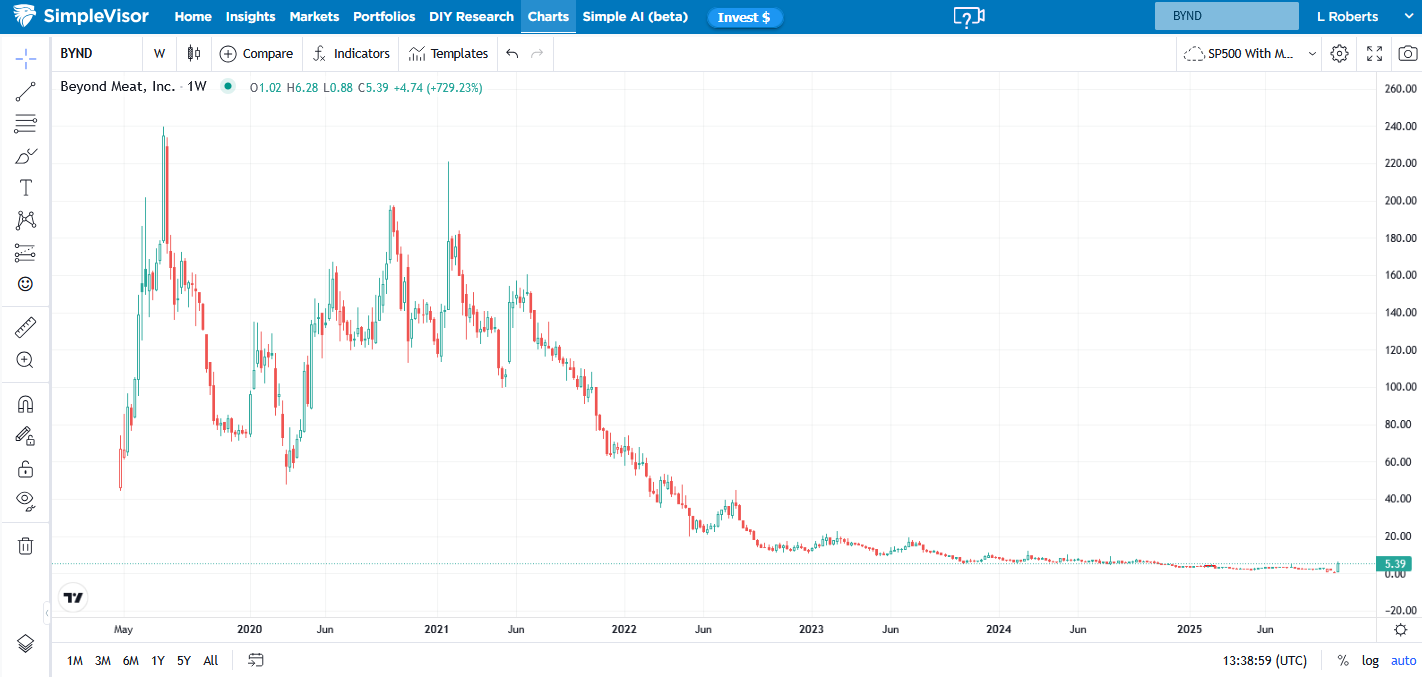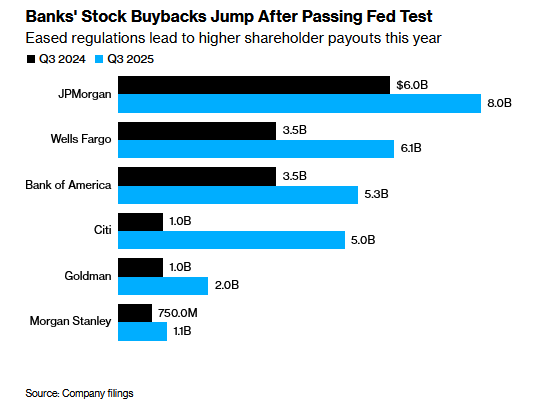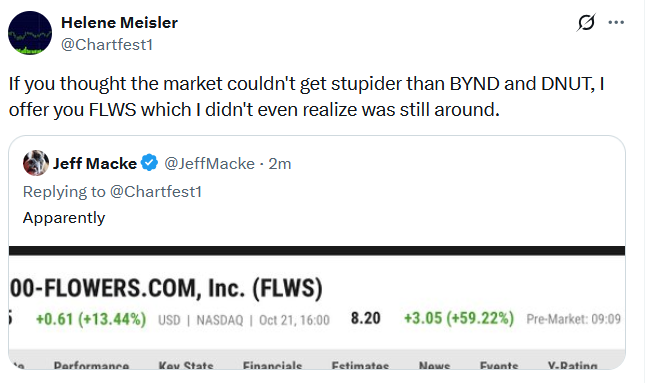TSX gains after CPI shows US inflation rose 3%
In August 2025, Beyond Meat (NASDAQ:BYND), a plant-based meat producer, took to social media to call reports of its bankruptcy “unequivocally false“. Despite the assurances, the company was floundering, and bankruptcy was a possibility. The company has significant liabilities and has lost money every year since its IPO. Adding to their woes, sales peaked in 2021 and have steadily declined since. Can Beyond Meat avoid bankruptcy while losing money and watching sales decline?
To help address its issues, on October 15th, the company completed an agreement that allowed its creditors to swap their debt for a combination of new debt and equity. The deal was dilutive to shareholders and drastically reduced Beyond Meat’s valuation. Beyond Meat shares reacted poorly over the next two days, falling by over 30% to nearly $0.50. Bear in mind, this was a $200+ stock in early 2021. Despite the bleak outlook, a meme trader named Demitri Semenikhin started promoting Beyond Meat shares on social media. Days later, the Roundhill Meme Stock ETF (NYSE:MEME) added Beyond Meat shares to its portfolio. Since Demitri pumped the company, its stock rose from $0.52 to over $7.00.
Beyond Meat is yet another example of the extreme speculation in the market. The company, despite recent efforts, will likely go bankrupt. While the debt swap may buy time, their weakening sales and heavy debt load, when combined with expected negative cash flows, are not a recipe for survival. Maybe shares are correctly rallying because management can turn the company around. Or, more likely, meme traders will make outstanding short-term profits as they sucker speculative investors into Beyond Meat to buy their shares at a higher price and leave these investors holding the bag.
Banks May Get A Break
The banking sector’s lobbyists have been working full-time to reduce Biden-era banking capital proposals. Two years ago, the banks feared the Fed would impose large capital requirement hikes. Such would reduce their ability to lend and buy securities, but it would also reduce risks. While safer, the banks would be less profitable. A lot has changed over the last two years.
The Federal Reserve’s most recent proposal on bank capital requirements is a sizeable retreat from its more aggressive stance. Initially, in 2023, the Fed was pushing for a 19% capital requirement hike, but this was reduced to 9% in 2024. The Fed is now floating a more modest 3% to 7% increase for most major banks. It seems Wall Street’s argument that heavier capital rules would choke lending and economic growth rang true with the Fed. This shift, now under interagency review, aims to finalize regulations without the gridlock that stalled prior efforts. While the proposal would be good for bank profits, boost capital market liquidity, and allow for more bank stock buybacks, it risks undermining post-2008 safeguards that aimed to avoid another financial crisis.
The graph and commentary below are courtesy Bloomberg:
Large banks have already shown more confidence in handing profit back to shareholders as regulators move to relax the enhanced supplementary leverage ratio and ease some aspects of the annual stress tests. The six biggest US banks boosted their stock buybacks by about 75% in the third quarter to more than $27 billion.

Tweet of the Day

